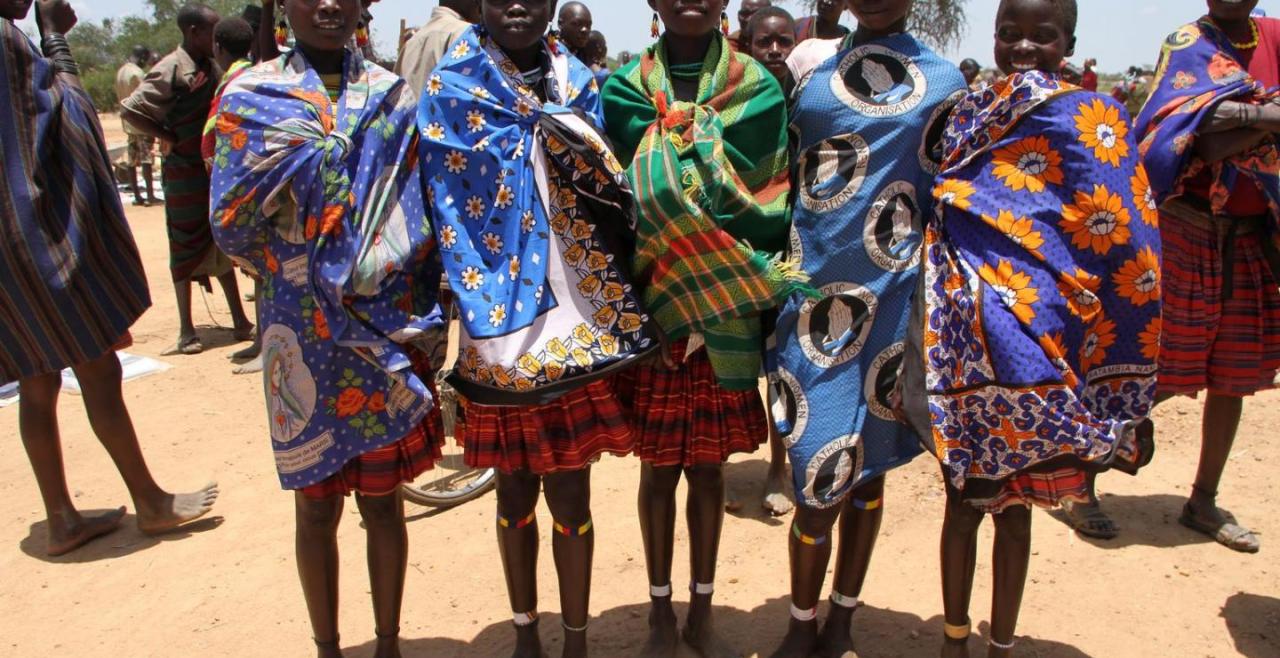Finding creative ways to discourage female genital mutilation in Uganda

AMUDAT DISTRICT, Uganda - Even after the Ugandan Parliament outlawed Female Genital Mutilation (FGM) over a decade ago, the dangerous practice of cutting girls’ genitalia has continued in some communities in the east and north-east of Uganda. In places like Amudat District, which is home to the Pokot community, FGM not only persists but it is actually believed to be increasing.
Leaders, health and social workers believe that FGM has simply gone underground, and in many cases, girls who approach puberty are smuggled out to neighbouring Kenya where they undergo the ‘operation’ and return when it is too late for the Ugandan authorities to stop them.
Now, innovative efforts to to prevent girls from incurring permanent and irreversible damage is taking place under the Spotlight Initiative and being implemented by UNICEF in Uganda. The district leadership team in Amudat, home of the Pokot community, is enlisting the participation of 20 young men who have married women who have not undergone FGM. The young husbands are to become social ambassadors bearing the message that FGM is unnecessary and harmful.
Centuries of practising FGM have conditioned many couples and people in traditional communities to believe that sex is purely for reproduction. The fact that women who undergo FGM continue to endure pain and poor health for the rest of their lives is often overlooked. In some communities, FGM is viewed as a prerequisite for marriage.
Following the outlawing of FGM, sensitization against the practice has been ongoing in conservative communities across Uganda, but with very limited impact. Straight Talk Foundation, which promotes adolescent reproductive health through communication, was one of the organizations that never gave up. When some parents expressed the desire to protect their daughters from FGM, Straight Talk Foundation supported 20 girls to successfully avoid 'the cut' with the help of their families and church. All 20 of the girls got married without undergoing FGM, something unknown to the Pokot, and their husbands are now happy to express their support for the elimination of the practice.
It is the testimony of these young husbands that government and non-government social workers now seek to amplify, as they encourage other young men to challenge the status quo and start telling girls that “if you are cut, we shall not marry you”. The hope is that older men, who regard their daughters as a source of income due to the cows paid for their hand in marriage, will get the message that if their daughters are cut, they will fetch fewer cows as younger generations reject FGM.
As an added incentive to denounce the practice, the government has rewarded each of the 20 girls with roofing iron sheets – a major component for constructing a modern, permanent house.
The Amudat District team plans to engage the 20 couples even more in the fight to end FGM, as their stories are the most powerful and convincing tool for influencing their peers. By supporting ambassadors to speak out in their own communities, it is possible to ensure that marriage is no longer a painful life sentence for women and girls.
By Joachim Buwembo. Original article published on UNICEF Uganda.
